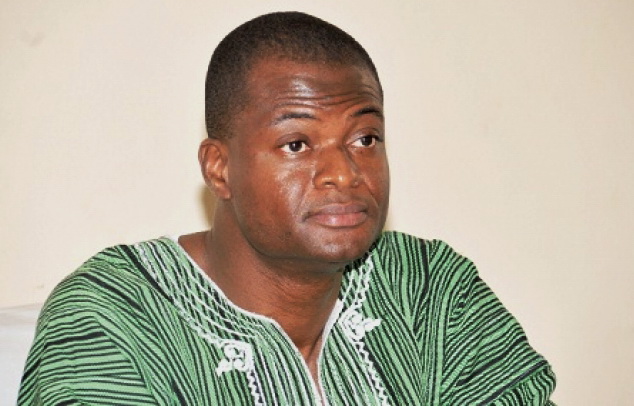
What Atuguba didn’t say
In academic circles, all research is scientifically obtained - not because they are the outcome of work done in a physics, chemistry or biology science lab.
They are scientific because they are the result of empiricism, governed by strict rules of conduct. The rules are such that any other researcher using the same hypotheses, sampling principles, sample size and methodology, must arrive at the same conclusions, with a margin of error not too significantly below and above the sample statistic in a confidence interval.
Advertisement
When people are calling on Law Professor, Dr Raymond Atuguba, to publish the full report of his research findings, the above are what they are looking for: how did he scientifically arrive at his conclusions?
The Harvard Law School Doctor of Juridical Sciences says he has found, after analysing 100 political cases presided over by the Supreme Court, that in cases where the laws aren’t “clear”, the judges usually vote in favour of the political parties that appointed them to the apex court; that from a sample of 100 cases, he found that 14 out of 22 NDC appointees to the Supreme Court have given judgment in favour of the NDC and that the NPP had 13 of its 16 judges giving judgments in favour of the party.
If these are “facts” scientifically obtained, then my non-legal mind is telling me that there is nothing wrong with what the learned academic has done. If anything, he has opened the lid off a tightly screwed probable can of worms, with much the same outcomes as an Anas Aremeyaw Anas investigation, except that this time there was no “tiger eye” with a masked face.
For as long as universities exist to train curious minds, there will always be the Atuguba’s, as there always will be a Kwabena Mensah-Bonsu to discover a missing Page 28 from the judgement of a Chief Justice I.K. Abban.
In a democracy where the entire society’s safety and security rests, in a large degree, on a strong Judiciary, an attack on the moral conduct of a judge is equivalent to a physical attack on the police service. It erodes public confidence in an institution which all citizens have a duty to protect with the last drop of our blood.
Environmentalists say that when the last tree dies, the last man dies. That is true. In a democracy, when the last judge is morally defiled, the entire society crumbles and impunity in given fuel.
Having said that I am of the view the outcomes of research, such as that of Prof. Atuguba, should be used to help reform the Judiciary.
One of the reforms I am desperately seeking in our Judiciary is the power exercised by the President of the Republic to expand the composition of the Supreme Court, especially for the purpose of a judicial review. That law is bogus and fraudulent.
In the NPP regime under President J.A. Kufuor, Mr Tsatsu Tsikata was accused of willfully causing financial loss of 2.15 billion old cedis to the State, in his capacity as Chief Executive Officer of the Ghana National Petroleum Corporation (GNPC).
Tsatsu first appeared before a Circuit Court but proceedings were terminated. When he was arraigned before a Fast Track Court, he filed a motion at the Supreme Court on February 11, 2002 seeking constitutional interpretation in respect of the Fast Track Court.
The Supreme Court upheld his position by a majority of 5-4 votes.
The Attorney General and Justice Minister at the time, Nana Addo Dankwa Akufo-Addo, held a press conference and announced the Government's intention to seek a review.
There were only 10 Justices of the Supreme Court at the time and since the Bench always sat in odd numbers, there was the need for an additional Justice to be empaneled.
Then President Kufuor appointed Justice Kwame Afreh as the 11th Justice of the apex Court. The 11-member review panel eventually overturned the earlier 5-4 ruling.
This is where my beef is roasting. For justice not only to be done but to be manifestly seen to be done, I think it is wrong to empower the President (any President) to appoint the top-up judge in a case in which the President is an interested party.
While congratulating Professor Atuguba on his academic work, however, I beg to point out the genesis of the problem which his research seeks to expose. At the heart of the matter is the power of appointment.
Prof Atuguba, may perhaps, have to return to the field. His task: to find out the truth or otherwise in the claim whispered at beer and palm wine bars, that the process of appointing Supreme Court judges is only a charade; that it is not necessarily the best candidate that gets appointed and that the phrase, “The President, acting on the advice of the Judicial Council and in consultation with the Council of State, has appointed (‘osimesi’) as Justice of the Supreme Court” only throws dust in our eyes.
On paper, a list of candidates is presented to the Judicial Council that conducts the professional process. From what I hear, it is almost an examination. The result of the exam is presented to the President, showing the performance of the candidates in ranking order. The whisper is that not once, not twice, the best performing candidates have not necessarily been the ones who are presented to the media by the President.



